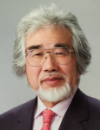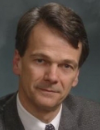Norio Nakatsuji
Professor Emeritus, Kyoto University and Chief Advisor, Kyoto Stem Cell InnovationProfessor Nakatsuji is a graduate from Kyoto University. He obtained postdoctoral training in Sweden, USA and UK. He became a professor at National Institute of Genetics in 1991. In 1999, He moved to the Institute for Frontier Medical Sciences at Kyoto University, which was reorganized for regenerative medicine. His laboratory established monkey ES cell lines in 2000. Since 2003, his group has established 5 human ES cell lines (KhES1-5) and distributed them for research purposes. Since 2007, he is the founding director of Kyoto University’s Institute for Integrated Cell-Material Sciences (iCeMS), an institute which aims to advance cross-disciplinary research and technological innovation based on cell biology, chemistry and physics. Recently, he is focusing on making the best use of hESC/hiPSC lines for drug discovery and cell therapy by multidisciplinary research utilizing chemical compounds and functional materials. His research group has created and investigated neurodegenerative disease model cells, such as Alzheimer, ALS and Huntington disease models. Also, they are working on control of stem cells with chemical compounds and materials for growth and differentiation of ES/iPS cells, and they have identified novel small molecules which can induce efficient and robust cardiomyocyte differentiation from many human ES and iPS cell lines in completely defined and xeno-free conditions. Most recently, they are developing novel technologies for large-scale production of high-quality human pluripotent stem cells using 3D-culture system. It is a government-supported project and carried out by collaboration between several technology-oriented companies and academic groups.
|  | | | Brock Reeve
Executive Director, Harvard Stem Cell InstituteBrock Reeve is Executive Director of the Harvard Stem Cell Institute. In partnership with the Faculty Directors, he has overall responsibility for the operations and strategy of the Institute whose mission is to use stem cells, both as tools and as therapies, to understand and treat the root causes of leading degenerative diseases.
HSCI is comprised of the schools of Harvard University and all its affiliated hospitals and research institutions. Under the leadership of the Executive Committee, HSCI invests in scientific research in three main areas–seed grants, core facilities and large-scale disease programs. HSCI’s faculty membership has grown to almost 300 Principal and Affiliated Faculty. The Institute is now engaged with several leading pharmaceutical companies in joint research projects and its faculty have founded several stem cell-related startup companies and serve on leading Scientific Advisory Boards.
Brock came to this role from the commercial sector with extensive experience in both management consulting and operations for technology-based companies, with a focus on life sciences. His clients have included some of the leading pharmaceutical, biotechnology and medical device companies, and he also has had hands-on operational responsibility in product management and marketing roles in software start-ups. Brock received a BA and MPhil from Yale University and an MBA from Harvard Business School. |  | | |
|

 Add to Calendar ▼2016-04-05 00:00:002016-04-06 00:00:00Europe/LondonStem Cells in Drug Discovery 2016Stem Cells in Drug Discovery 2016 in Cambridge, UKCambridge, UKSELECTBIOenquiries@selectbiosciences.com
Add to Calendar ▼2016-04-05 00:00:002016-04-06 00:00:00Europe/LondonStem Cells in Drug Discovery 2016Stem Cells in Drug Discovery 2016 in Cambridge, UKCambridge, UKSELECTBIOenquiries@selectbiosciences.com